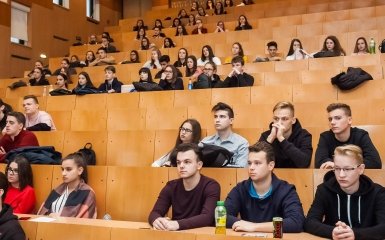Russian propagandists are spreading a fake narrative about the mass closure of universities in Ukraine to send students to the front.
A new Russian fake news about the mobilisation of students
To give credibility to their fakes, the enemy uses the statements of Ukrainian politicians regarding the need to optimise the country's higher education system.
In this way, enemy propagandists are trying to spread panic among Ukrainian youth and mistrust of the Ukrainian state.
In fact, there is no question of any mass closure of universities in Ukraine. The possibility of unification of separate educational institutions is being discussed, which does not involve either the expulsion of students or the dismissal of teachers, — says the Center for Countering Disinformation (CCD) statement.
Also, the issue of cancelling the postponement of the draft for students has not been considered.
Trust only verified sources of information, — added the CCD.
Russia made another fake news about Ukraine's state guard borders
The CCD notes that Russian Telegram channels spread information that "Ukrainian border guards were allowed to open fire and use FPV drones on those trying to escape from Ukraine."
As proof, the propagandists distribute a photo showing a banner with the relevant content.
After verifying the information with Ukraine's State Border Guard Service, the CCD informs that the message and photo distributed by the Russians are another fake news intended to intimidate the country's population and discredit the border guards.
Ukrainian border guards operate exclusively within the limits of current legislation, and they use weapons and FPV drones exclusively against the invaders, which they could feel in the first days of the full-scale invasion of Ukraine.




